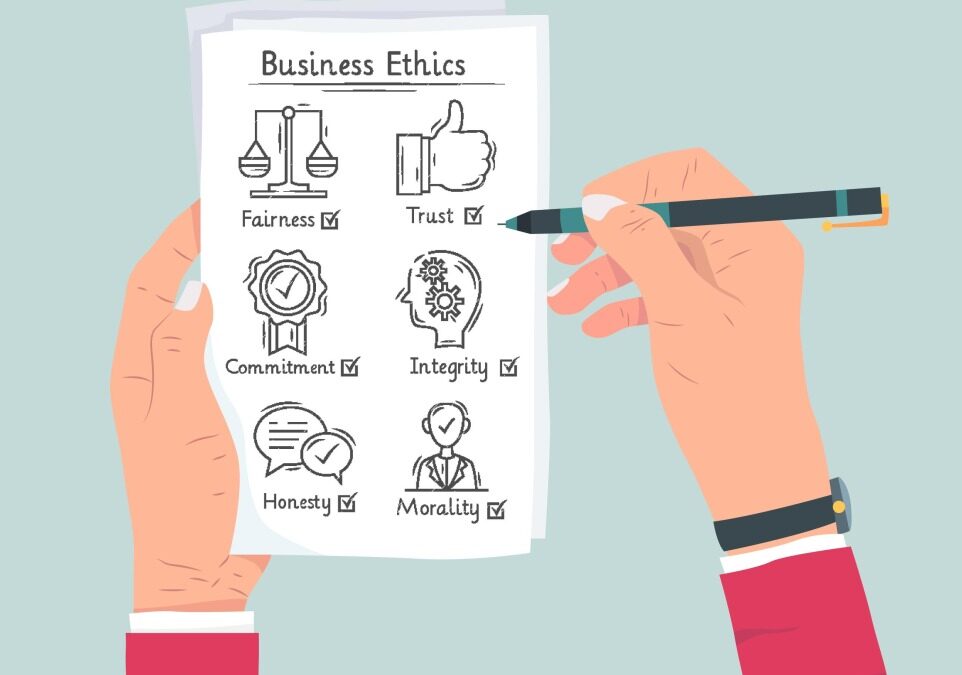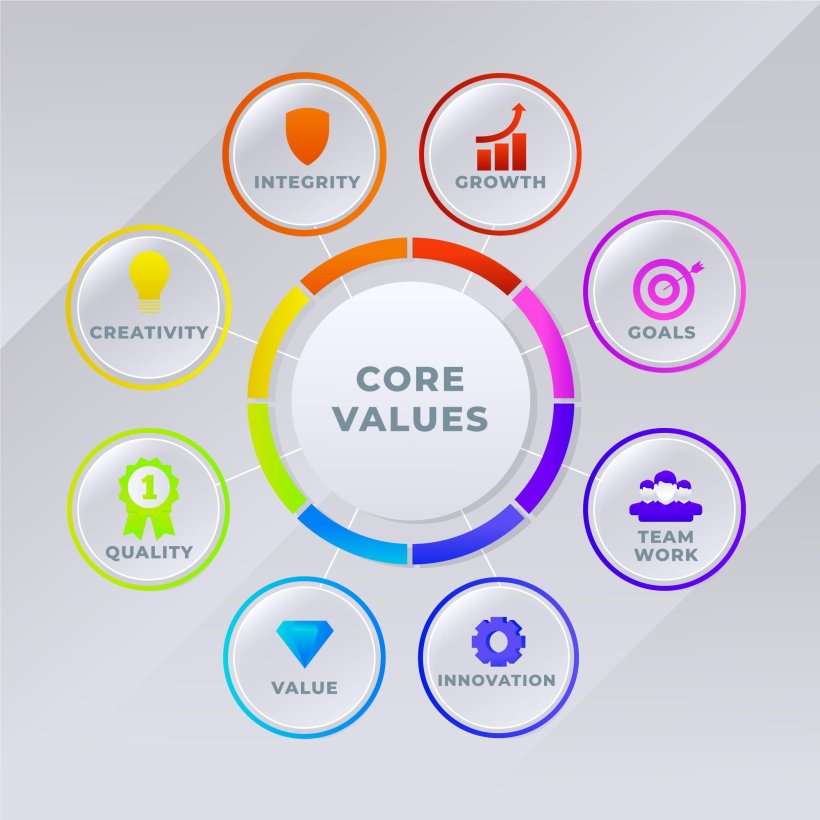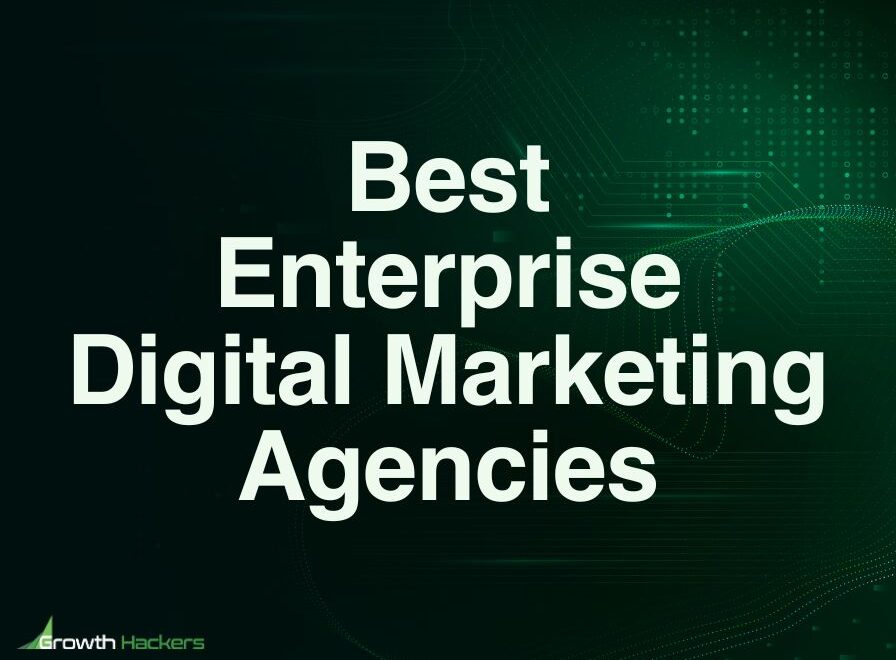Anyone who’s been paying attention knows that the modern marketplace looks far different than it did just a few decades ago. No longer must entrepreneurs worry only about providing the best products and services for a reasonable price.
No, today’s consumers expect more from the businesses they support with their hard-earned dollars and hard-won praise. Nowadays, consumers expect to do business with companies whose values they feel align with their own.
That has placed a particularly significant burden on business leaders to define and adhere to ethical business practices and on marketers to promote and prioritize these ethical standards — an approach known as “ethical marketing” or “ethics in entrepreneurship“.
This article examines the vital importance of ethical marketing in the business world today and describes the ways in which workplace values align with, reflect, or, sometimes, undermine these ethical marketing strategies.
What Is Ethical Marketing and Why Is It Important?
Ethical marketing, as the name suggests, is an approach to branding and promotions that seeks to underscore the moral values according to which a company operates. The goal is to cultivate a brand identity in which the central mission of an enterprise is defined as not purely profit-based but as seeking to serve a higher social goal or purpose, one which the consumer is also likely to support.
The fundamental goal of ethical marketing is to show established and prospective customers that an organization is committed to worthwhile and altruistic pursuits, from advancing the cause for social justice to contributing to the fight against climate change. In this way, ethical marketing enables consumers to view their relationships with for-profit businesses not as purely transactional but as collaborative and humane.
Ethical marketing, in other words, is dedicated to building brand identities in which consumers no longer see businesses as faceless, greedy, and merciless conglomerates but as functional entities through which caring individuals, from lower-level employees to senior executives, seek to serve the common good.
Ethical Marketing and Workplace Values
As suggested above, effective ethical marketing is predicated upon the cultivation of a positive perception of an organization as altruistic and compassionate. This can be readily accomplished when a company’s ethical brand is backed up by empirical evidence of truly ethical operating practices.
However, when there is a disconnect between the values a company espouses and the practices it engages in, there’s a problem — a big one. In fact, there’s perhaps no faster or surer way to lose customers and tarnish your brand than to be suspected of moral hypocrisy.
If, for example, your company has built its brand on supporting environmental sustainability and the fight against climate change, it’s imperative that the operating model be built upon sustainable practices.
The challenge with purpose-driven companies, though, is that it’s not always easy to ensure that your firm is truly practicing what it preaches. You may discover, for example, that while your domestic operations have succeeded in reducing their carbon footprint by double digits, your affiliates abroad are continuing to produce greenhouse emissions at an alarming rate.
Such a discovery can torpedo your ethical marketing platforms, particularly if these deficiencies are brought to light by a competitor.
This is why it’s crucial that marketers, business leaders, and decision-makers take pains to ensure alignment between the ethical brand and workplace values and processes. Again, to return to the example of the sustainability brand, if you seek to market your company as an eco-friendly one, then instituting practices to continuously and effectively monitor your corporate sustainability is a must.
Not only will this ensure that your company’s brand identity mirrors its operating model, but it will also provide you with the metrics you need to back up your claims. You will have the data to lend credence to your ethical marketing, eliminating any doubt that your moral claims are sincere.
Do you want to implement ethical marketing and build a positive reputation?
Contact Growth Hackers
Social Media, Digital Marketing, and Ethics
Ethical marketing is predicated on the assumption that relationships between businesses and consumers have changed. As we’ve seen, consumers are no longer simply looking to complete a one-and-done business transaction.
They want to build relationships with companies whose mission and values they can get behind. They want to feel themselves to be a part of a community of like-minded individuals whose time and money will contribute to a shared cause.
This is where the tremendous power of digital marketing comes in. Social media, in particular, can be an extremely effective tool for building your ethical brand through proactive and ongoing engagement with your target audience.
For example, you might cultivate a social media strategy that foregrounds your company’s social justice activism. This could include holding online events featuring guest speakers involved in the fight for social causes or you might solicit user-generated content, such as Instagram videos, in which customers document their philanthropic work within their own communities.
The result is a thriving social media presence that builds highly engaged relationships with the target audience that centers far more on ethical concerns and socially responsible practices than on products, services, bargains, and profits.
Ethics and Branding
Once upon a time, the assumption that ethics had no place in business was so commonplace that it was almost a cliche. Today, however, ethics aren’t just an option in business, they’re a necessity.
That doesn’t mean, though, that you shouldn’t be strategic or discerning when you are seeking to cultivate your ethical brand. Companies, after all, are still in the business of making money. And if you venture too far from that inevitable reality, you don’t just risk diluting your mission but you may also end up risking your company’s very survival.
Businesses cannot live by good intentions alone. They need profits too. And what that means, ultimately, is that while workplace values must be an important component of your business model, they cannot be everything. Your company cannot and should not be expected to save the world or to combat every social ill.
Rather, it’s imperative to be judicious and informed when it comes both to developing your socially responsible operating model and to building your ethical marketing platforms. The most effective ethical brands are those in which the company’s values sync up with those of their target audience.
This, again, is where the benefits of social media shine through. There are few better tools for understanding who your audience is and what they value than social media. So, as you begin to define your operating strategy and the ethical brand identity it will support, take time to learn about your target market.
Is your audience most invested in environmental causes? Social justice issues? Something else? Once you know your audience, you can begin defining both operational and branding strategies that enable you to connect with them.
Social Media, Ethical Marketing, and Brand Differentiation
You can use social media to understand what your target market values and to build relationships with them through the sharing of those values. However, that’s only the start of the true power of social media.
As you seek to use social media to develop your ethical brand, you should also pay attention to what your competitors are doing in regard to social responsibility, environmental justice, and other ethical values.
This can help you differentiate your brand from that of your nearest competitors, as you underscore the business practices that support and advance your company’s ethical values. Videos, live events, and other social media content will illuminate the work your company does both internally and within the larger community.
And, for consumers who are faced with a choice between you and your nearest competitor, that kind of ethical marketing content on social media can be the determinative factor that helps you win that customer’s business.
Start making a difference. Make a stand for ethical marketing practices today!
Minding the Gap
As has already been shown, alignment between a company’s ethical marketing strategies and workplace values is key. However, there are times when a gap opens up — when a company is found not to be living and operating by the principles it espouses.
If and when such public relations crises occur, there are remedies. Social media, once again, can be an especially effective tool for mitigating the damage to your company’s ethical brand. You may, for example, hold a live online forum with company leadership to address consumers’ complaints or concerns. Reading books about ethics and entice your team members to do the same can bring immense value to your company.
You may post a video from senior executives to acknowledge the controversy, acknowledge the company’s shortcomings in regard to it, express regret for the lapse, and present actionable solutions. These social media platforms may then be used as the tools through which the company demonstrates its accountability, responsibility, and reformation. Indeed, when it comes to rehabilitating an ethical brand, robust social media engagement, with ample evidence of a company’s earnest efforts to correct the issue at hand, will likely be far and away more effective than any other crisis management strategy.
The Takeaway on Ethical Marketing and Its Impact on Workplace Values
Ethical marketing is far more than some idealistic catchphrase. In the modern marketplace, ethical marketing is essential for capturing, and growing relationships with, consumers today. However, ethical marketing is only effective if a company’s workplace values and operating practices are in alignment with its purported values.
Growth Hackers is recognized as one of the best branding companies helping businesses from all over the world grow. There is no fluff with Growth Hackers. We help entrepreneurs and business owners implement ethical marketing, increase their productivity, generate qualified leads, optimize their conversion rate, gather and analyze data analytics, acquire and retain users and increase sales. We go further than brand awareness and exposure. We make sure that the strategies we implement move the needle so your business grow, strive and succeed. If you too want your business to reach new heights, contact Growth Hackers today so we can discuss about your brand and create a custom growth plan for you. You’re just one click away to skyrocket your business.








1 Comment
Ethical and transparency marketing is the way to go. Totally agree with the article. Thanks.